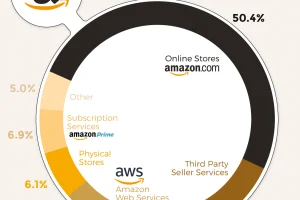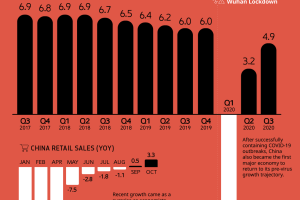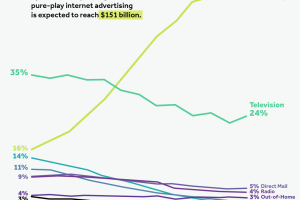The Briefing
- Domestic equities held by the Bank of Japan (BoJ) reached $434 billion in November 2020, the highest value ever recorded on its balance sheet
- The BoJ began buying equity ETFs (exchange-traded funds) in 2010 to help stabilize its economy
- The BoJ has now surpassed the country’s Government Pension Investment Fund as the largest owner of Japanese stocks
Equity Purchases by the Bank of Japan Reach a New Milestone
The Bank of Japan (BoJ) increased its equity holdings to $434 billion in November 2020, surpassing Japan’s Government Pension Investment Fund to become the country’s largest holder of domestic stocks.
This milestone will likely capture the attention of global policymakers, as the BoJ is the only central bank to purchase equities—a practice it first began in 2010. These purchases were intended to stabilize the Japanese economy after the 2008 financial crisis, but have carried on ever since.
Why Does the Bank of Japan Purchase Equities?
For decades, Japan has experienced a stubbornly low rate of economic growth relative to its peers. Despite the BoJ’s best efforts to boost growth, this trend has continued after the events of 2008.
| Year | Japan (% GDP growth) | South Korea (% GDP growth) | U.S. (% GDP growth) |
|---|---|---|---|
| 2010 | 4.2% | 6.8% | 2.6% |
| 2011 | -0.1% | 3.7% | 1.6% |
| 2012 | 1.5% | 2.4% | 2.3% |
| 2013 | 2.0% | 3.2% | 1.8% |
| 2014 | 0.4% | 3.2% | 2.5% |
| 2015 | 1.2% | 2.8% | 2.9% |
| 2016 | 0.5% | 2.9% | 1.6% |
| 2017 | 2.2% | 3.2% | 2.4% |
| 2018 | 0.3% | 2.9% | 2.9% |
| 2019 | 0.6% | 2.0% | 2.2% |
| Average | 1.28% 🇯🇵 | 3.31% 🇰🇷 | 2.28% 🇺🇸 |
Source: World Bank
No stranger to unconventional policies, the BoJ believes its equity purchases will add a sense of security to the stock market, and as a result, encourage greater levels of investment. Since these purchases began, the Nikkei 225, an index tracking 225 large Japanese corporations, has generated a total return of roughly 160%.
A Drop in the Pond
While $434 billion in equities is by no means a small amount, it pales in comparison to the BoJ’s total assets of $6.7 trillion. This includes $5.1 trillion in Japanese government debt, and $59.4 billion in domestic corporate bonds.
These figures fall in line with other central banks including the U.S. Fed, which currently has $7.4 trillion in assets on its balance sheet. Whether the Fed will also begin purchasing equities, however, remains to be seen.
Where does this data come from?
Source: NLI Research Institute, 2020
Notes: Data as of Nov. 30, 2020.
Figures based on a conversion rate of 1 JPY = 0.0096 USD.





